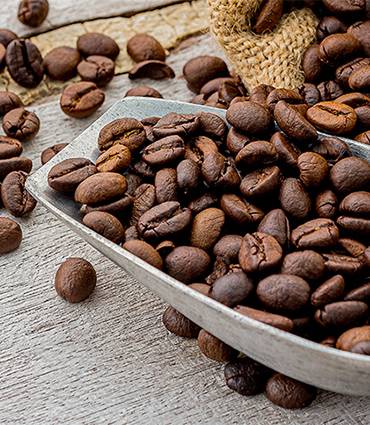
Caffeine

Description
Who has never smelled and enjoyed the sweet smell of coffee coming out of the percolator? However, although caffeine is the active ingredient in coffee, from which it takes its name, it is also found in cocoa beans, chocolate, tea and mate leaves, kola nuts and guarana seeds.
Caffeine is an alkaloid of the methylxanthine family known for its psychoactive properties. It acts particularly on the central nervous system where it has a stimulating effect. Caffeine reduces the feeling of fatigue, promotes wakefulness and increases alertness, stimulates concentration and memory, and also facilitates ideation (formation and linking of ideas). It is also known to have anti-migraine properties.
Caffeine is also active in the cardiovascular system, increasing the rhythm and contraction of the heart and promoting oxygenation. In addition, this molecule has a vasodilator activity and a mild diuretic effect. Caffeine also aids digestion.
However, in order to benefit from caffeine and not be subject to side effects, it is recommended not to exceed doses of 300mg of caffeine per day.
The benefits
Caffeine acts particularly on the brain and heart. It promotes alertness, contributes to intellectual performance and helps to remain vigilant.
Furthermore, caffeine helps to improve physical performance and reduces the perception of effort.
Scientific publications
Caffeine is the subject of more than 31 086 scientific publications.

























